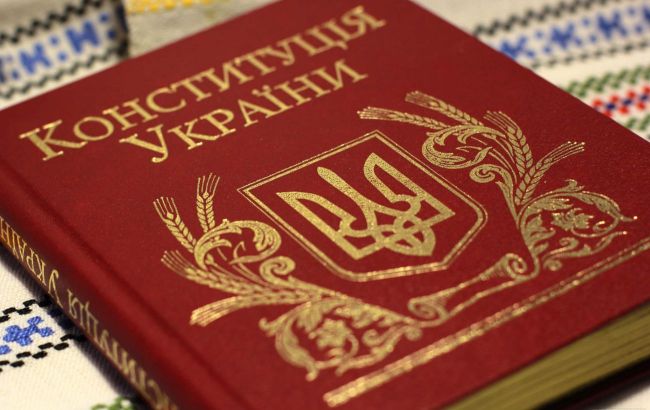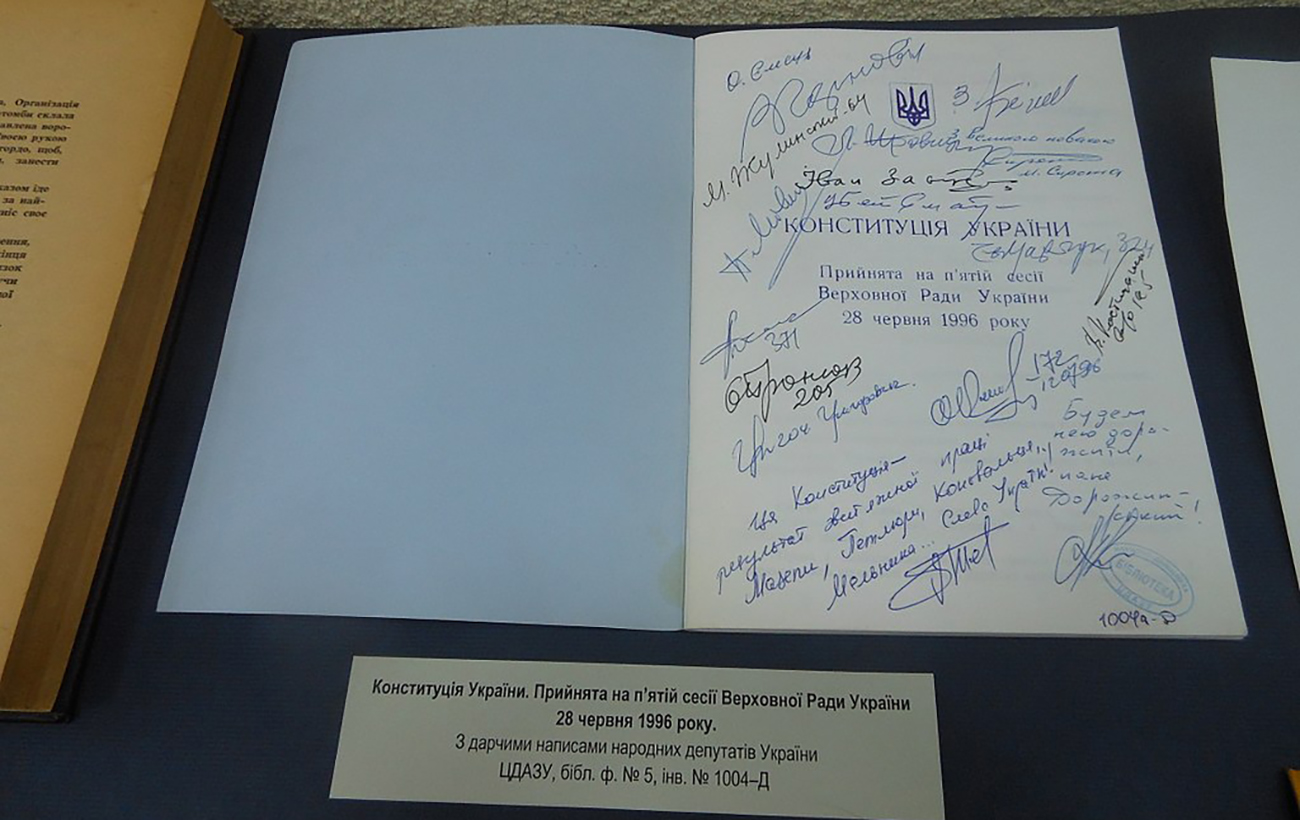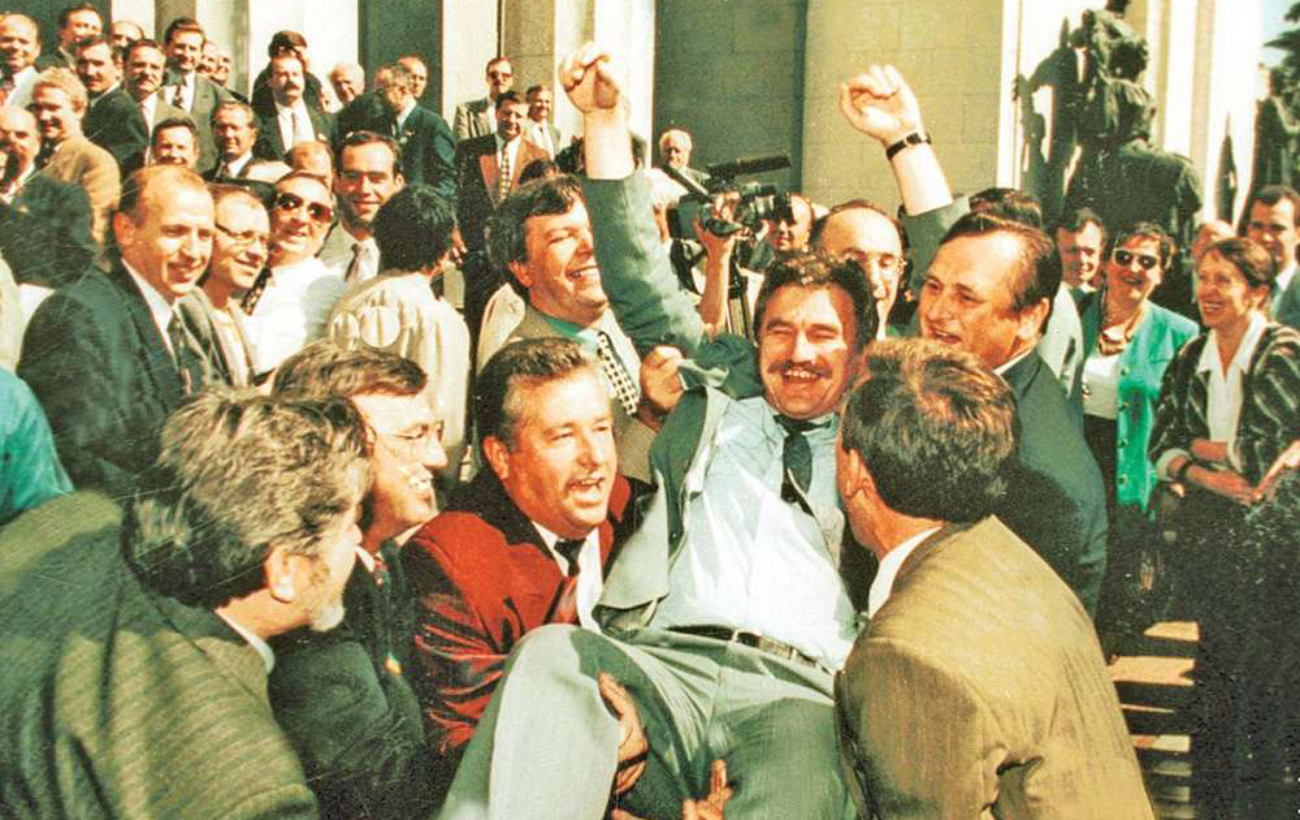Ukraine's Constitution Day: How country adopted fundamental law and what preceded it
 Photo: Constitution Day of Ukraine - June 28 (facebook.com/kpszsu)
Photo: Constitution Day of Ukraine - June 28 (facebook.com/kpszsu)
Ukraine celebrates Constitution Day on June 28. The main state document was adopted on this day exactly 28 years ago. However, the history of lawmaking on Ukrainian lands began much earlier.
Read more about the significance of the holiday and Ukraine's path to the Constitution in the RBC-Ukraine article.
Сontents
- Constitution Day of Ukraine. Importance of holiday
- Years of preparation and 'constitutional night'. How Ukraine's basic law was adopted
- Laws on Ukrainian lands before modern Constitution
Constitution Day of Ukraine. Importance of holiday
One of the main public holidays, Constitution Day, falls on Friday, June 28. In 2024, Ukrainians celebrate the 28th anniversary of the adoption of the country's main legal act.
This day has become significant for Ukraine's state-building since its independence, as the Constitution established the basic principles of a sovereign and democratic country:
- defined the principles of interaction between society and the government;
- guaranteed human rights and freedoms;
- enshrined the sovereignty of the state over its entire territory, which is recognized as inviolable.
 Photo: Constitution of Ukraine, 1996 (tsdazu.archives.gov.ua)
Photo: Constitution of Ukraine, 1996 (tsdazu.archives.gov.ua)
It is noteworthy that Constitution Day is the only public holiday enshrined directly in the Constitution (Article 161).
June 28, 2024, is supposed to be a public holiday for Ukrainians. However, due to martial law, the Constitution Day weekend and all other holidays have been canceled for the third year in a row.
Years of preparation and 'constitutional night'. How Ukraine's basic law was adopted
Five years after the declaration of independence, Ukraine received its Constitution. It happened on the morning of June 28, 1996, in the Verkhovna Rada after 24 hours of debate by MPs.
In general, the development of the document has been going on since 1992. A constitutional commission was set up for this purpose. The draft Constitution was amended and supplemented more than 15 times due to disputes and disagreements between representatives of different branches of government. Even before its final adoption in the second reading, the document contained 6,000 amendments.
The most controversial issues were the approval of state symbols, language, and the status of Crimea. Some MPs initially refused to approve the trident and the blue and yellow flag. Other parliamentarians believed that Crimea should become one of the country's regions, not an autonomous republic.
There were also difficulties with the language issue, in particular the status of Russian. In the end, Ukrainian was recognized as the only state language and other minority languages were guaranteed protection and development.
The second reading of the draft Constitution began in the Rada on June 27 at 9 a.m. and turned into a real marathon, called the 'constitutional night.' MPs worked non-stop for almost a day. MP Mykhailo Syrota read all the articles from the rostrum of the parliament.
 Photo: Mykhailo Syrota and MPs in the Rada after the adoption of the Constitution (rada.gov.ua)
Photo: Mykhailo Syrota and MPs in the Rada after the adoption of the Constitution (rada.gov.ua)
He was the head of the constitutional commission. Syrota noted that the struggle for the Constitution was very exhausting, and there were moments when it seemed that everything was hanging in the balance and there would be no independent Ukraine.
"There was a struggle for whether there would be a Ukrainian state, whether it would follow the course that the entire developed world is following... On June 27, when we entered the Verkhovna Rada at nine o'clock, we realized that either we would complete the adoption of the Constitution without leaving the Verkhovna Rada, or that there would be no Constitution in Ukraine," he recalled.
Nevertheless, at 9:20 a.m. on June 28, the basic law of the state was adopted by 315 votes.
Laws on Ukrainian lands before modern Constitution
The process of lawmaking on Ukrainian territory began long before the adoption of the 1996 Constitution. According to the Ukrainian Institute of National Memory, Ukrainian constitutionalism has peculiarities. The most important of them are democracy and respect for social and individual rights.
These principles have been formed over the centuries following the national character of Ukrainians, their way of life, values, and social relations.
Rus Pravda by Yaroslav the Wise
The first collection of laws of the Kyivan principality dates back to the 11th century. It contained criminal, inheritance, commercial, and procedural laws.
Lithuanian Statutes
They incorporated the legal traditions of Ancient Rus and medieval Europe. They established the limits of princely power and protected the rights of various social classes.
March Articles by Bohdan Khmelnytskyi
Regulated the political, legal, financial, and military situation of Ukraine after the Pereyaslav Rada.
Constitution of Pylyp Orlyk
The 1710 Constitution of the Hetman of the Zaporizhzhia Army, Pylyp Orlyk, is considered the first written constitution in Europe. It referred to the restriction of the hetman's rights and the need to divide power into judicial, legislative, and executive branches.

Photo: Constitution of Pylyp Orlyk (GettyImages)
Statute on the State System, Rights and Freedoms of the Ukrainian People's Republic
On April 29, 1918, the Central Rada adopted the Constitution of the Ukrainian People's Republic. The UPR was proclaimed a sovereign state, independent and independent of anyone. The document did not come into force because of the coup d'état of Hetman Skoropadskyi.
Constitutions of Soviet era
During the Soviet era, the Ukrainian SSR adopted constitutions in 1919, 1929, 1937, and 1978. The latter was in effect in Ukraine until 1996.
The Soviet constitutions declared a certain set of democratic values (universal suffrage, the right to work and rest, material security in old age, freedom of conscience, speech, press, assembly, and rallies), but they were only a formality and in reality, served as a cover for the domination of the totalitarian regime and the Communist Party.
Sources: Ukrainian Institute of National Memory, Suspilne Culture, Wikipedia, and the text of the Constitution of Ukraine on the website of the Verkhovna Rada.

